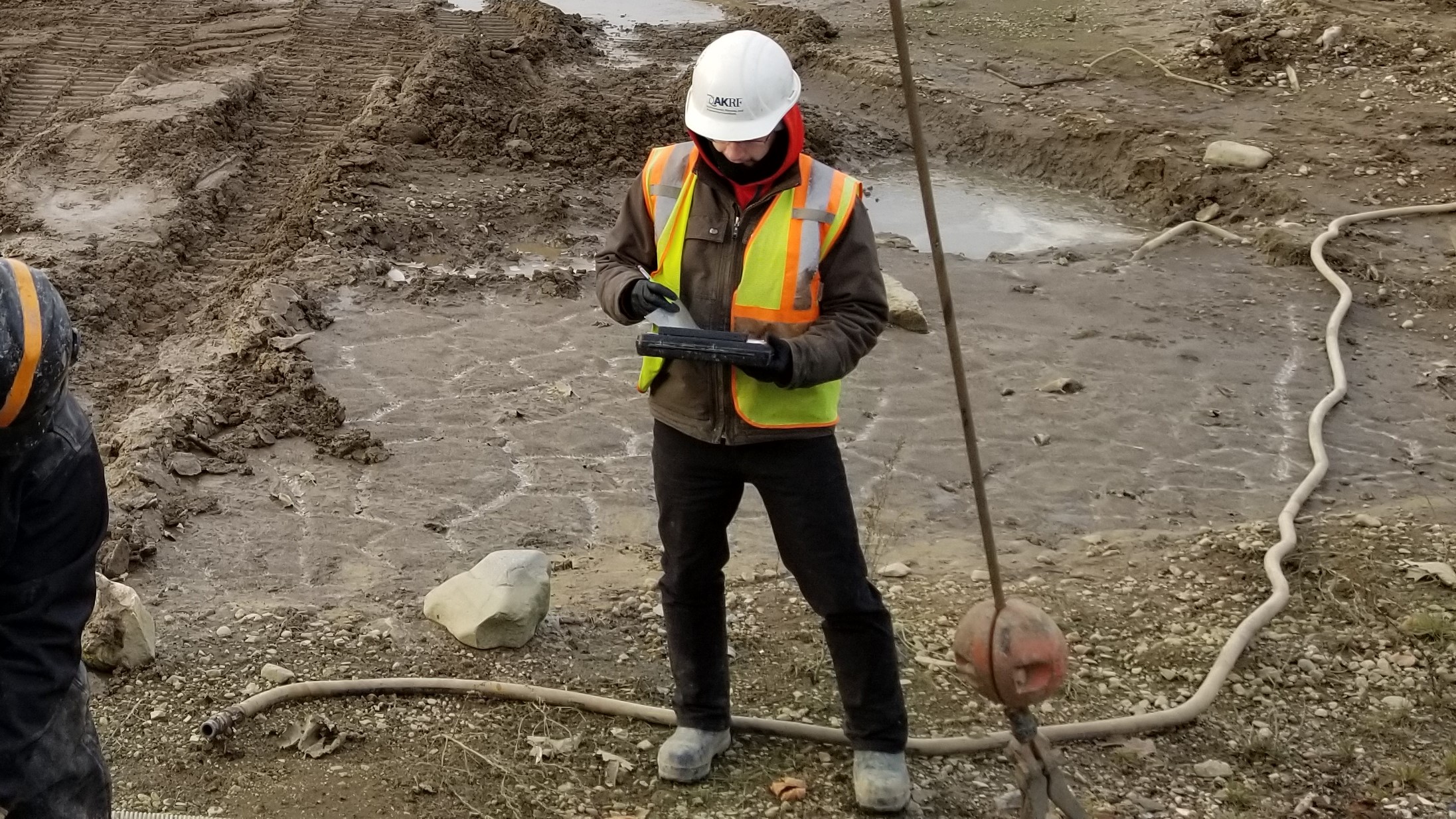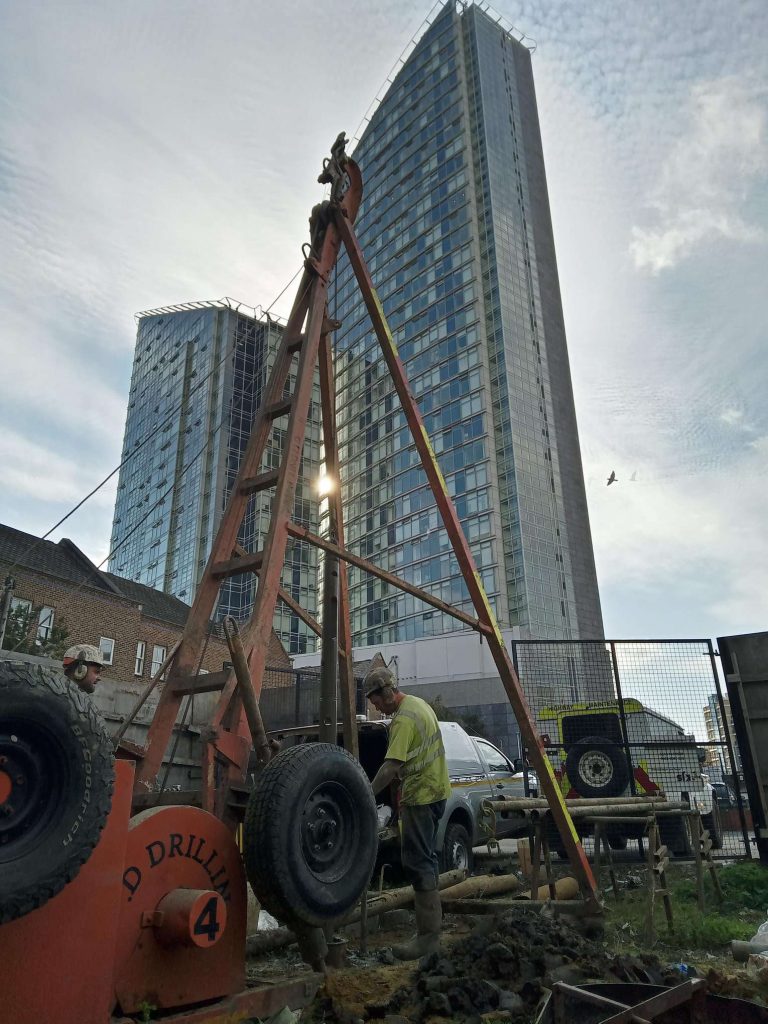Vital Abilities for Prospering in the Geotechnical Industry Today
Vital Abilities for Prospering in the Geotechnical Industry Today
Blog Article
An In-depth Summary of the Secret Obligations of Geotechnical Designers in Website Characterization and Ground Enhancement Strategies for Engineering Solutions
Geotechnical engineers are important to the effective implementation of design jobs, entrusted with the critical duties of site characterization and the application of ground renovation methods. Their work involves a comprehensive evaluation of subsurface problems, utilizing different screening methods to identify soil and rock buildings.
Function of Geotechnical Designers
Geotechnical engineers play a critical role in the design and construction of facilities by evaluating the habits of dirt and rock below the surface - civil consulting engineers. Their responsibilities incorporate assessing subsurface conditions to educate design decisions that make sure structural security and safety. By performing comprehensive evaluations of soil residential or commercial properties, including shear stamina, leaks in the structure, and compressibility, geotechnical designers give essential information that affects the choice of ideal construction materials and techniques
In addition to assessing dirt technicians, geotechnical engineers are tasked with identifying potential dangers such as landslides, sinkholes, and ground settlements. Their know-how helps mitigate threats connected with these geotechnical phenomena, therefore shielding both the environment and public security. They additionally work together very closely with other engineering disciplines, making certain that geotechnical considerations are incorporated right into overall project style.
In addition, geotechnical engineers take part in the analysis of existing frameworks, offering recommendations for retrofitting and fixings when required. Their extensive understanding of soil-structure interaction is essential for the development of sustainable infrastructure options. Generally, the function of geotechnical designers is important to the successful understanding of building tasks, guaranteeing they are secure, sturdy, and compliant with governing requirements.

Site Characterization Processes
Efficient site characterization procedures are crucial for recognizing the subsurface conditions that influence job design and execution. Geotechnical engineers use a systematic method to collect, review, and analyze information regarding soil, rock, and groundwater attributes. This procedure begins with a thorough evaluation of existing literary works and historic site information, offering understandings into previous website conditions and possible obstacles.

Information analysis adheres to fieldwork, where designers use geostatistical methods to analyze findings and develop geological designs. With diligent website characterization, geotechnical designers lay the foundation for successful task execution, optimizing and decreasing unpredicted difficulties resource allotment.
Soil and Rock Screening Methods
While understanding subsurface problems is important, the selection of suitable dirt and rock testing approaches is similarly necessary for accurate evaluation and design. Geotechnical engineers utilize a variety of screening techniques to assess the mechanical and physical residential properties of dirt and rock products.
Research laboratory examinations, such as Atterberg limitations, grain dimension evaluation, and unconfined compressive toughness examinations, provide essential information on soil behavior under various wetness this problems and loading situations. These tests assist identify soil classification and forecast settlement or shear strength attributes essential for structure design.
In-situ testing techniques, including Standard Infiltration Examinations (SPT), Cone Infiltration Examinations (CPT), and stress meter tests, permit engineers to collect information directly from the ground. These techniques use valuable understandings right into the dirt's thickness, uniformity, and stratification without the need for extensive tasting.
Rock screening normally entails core tasting and lab analysis to evaluate residential or commercial properties like uniaxial compressive toughness and rock high quality classification (RQD) Together, these soil and rock testing techniques allow geotechnical designers to make informed decisions regarding site-specific challenges, making sure the safety and security and security of design remedies.
Ground Improvement Methods
Ground renovation strategies are necessary for improving the engineering residential or commercial properties of soil, thereby raising its load-bearing capacity and lowering negotiation. These approaches are critical in attending to challenges offered by weak or bothersome soils, which can dramatically influence the stability and toughness of frameworks.
Various ground enhancement techniques are used, including compaction, grouting, and dirt stablizing. Grouting, on the other hand, includes injecting a fluid product right into the ground to fill up voids and boost soil communication.
Dirt stabilization incorporates an array of approaches, from chemical ingredients to mechanical therapies, focused on enhancing the soil's resistance to erosion and contortion. Techniques such as lime stabilization or concrete mixing modify the properties of the soil at a fragment level, enhancing its general efficiency.
Importance of Geotechnical Evaluations
Geotechnical analyses play a vital function in get more the planning and layout of engineering projects, as they supply important info regarding the subsurface problems. Comprehending soil residential properties, rock developments, groundwater degrees, and possible geohazards is crucial for making certain the stability and safety and security of structures. These assessments enable designers to make educated choices relating to site selection, layout criteria, and building and construction methodologies.
The importance of geotechnical evaluations expands beyond first project stages; they contribute in risk management and cost efficiency. news By determining potential issues early, such as dirt settlement, incline instability, or too much groundwater, designers can devise ideal mitigation methods, decreasing the probability of structural failings and pricey hold-ups. Additionally, these assessments sustain conformity with regulatory needs and boost the sustainability of engineering methods.

Verdict
Finally, geotechnical designers are vital to making sure the safety and security and security of engineering projects with detailed site characterization and ground enhancement techniques. geo tech engineering. Their organized approach to analyzing subsurface problems, integrated with their referrals for efficient ground modification, considerably enhances soil residential or commercial properties and load-bearing ability. The expertise of geotechnical engineers not only assists in informed task preparation yet also guarantees compliance with regulations and cultivates reliable interaction among stakeholders, eventually contributing to effective design outcomes
Geotechnical engineers play a critical role in the style and building of framework by examining the actions of dirt and rock below the surface area. By conducting in-depth evaluations of dirt residential or commercial properties, consisting of shear leaks in the structure, compressibility, and toughness, geotechnical designers offer essential information that affects the option of suitable building and construction materials and methods.
In enhancement to evaluating dirt technicians, geotechnical designers are entrusted with identifying prospective hazards such as landslides, sinkholes, and ground negotiations. Geotechnical designers use an organized method to gather, evaluate, and translate information pertaining to groundwater, rock, and soil characteristics. By recognizing potential concerns early, such as soil settlement, slope instability, or extreme groundwater, engineers can develop appropriate reduction methods, lowering the possibility of structural failings and costly delays.
Report this page